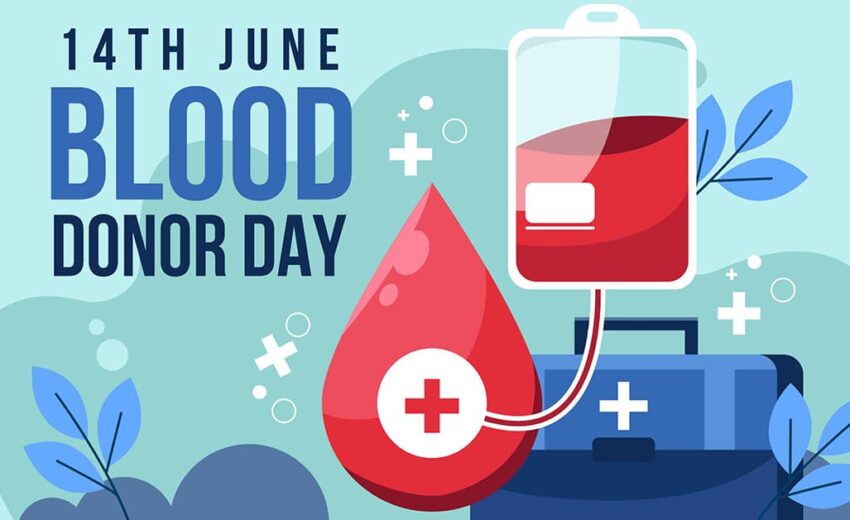As Nigeria joins the global community in observing World Blood Donor Day (WBDD) today, the country continues to grapple with a severe shortage of blood supply, despite its population of over 200 million. The National Blood Services Commission (NBSC) reports that Nigeria can only produce 25 percent, or 500,000 units, of the required two million units of blood annually. To bridge this shortfall, the country would need an estimated N90 billion to produce the remaining 1.5 million units.
Under the theme “Give Blood, Give Plasma, Share Life, Share Often,” this year’s WBDD highlights the importance of blood and plasma donations for patients in need, particularly those with lifelong conditions like sickle cell anemia. However, Nigeria’s Acting Director General of NBSC, Dr. Joseph Amedu, laments the lack of willingness to donate blood in the country, which remains a significant challenge.
Dr. Amedu emphasizes the capital-intensive nature of blood donation and transmission, citing the high cost of producing a single unit of blood, ranging from N50,000 to N60,000. He urges increased investment in blood services from the federal, state, and local governments, as well as the private sector, to ensure access to safe blood for alls.
“The shortage of blood supply is a pressing issue that needs urgent attention. We must invest in blood services to meet the demand and provide safe blood for patients in need,” says Dr. Amedu.
The World Health Organization (WHO) recognizes the critical role of safe and quality-assured blood products in improving and saving millions of lives each year. Inadequate or unsafe blood supply negatively impacts healthcare services and patient care, affecting acute and chronic conditions, child mortality, maternal health, and complex medical procedures.
“Together, we can make a difference by donating blood and plasma. Every donation counts and has the potential to save lives,” states the WHO.
To enhance the safety of blood transfusions, the NBSC has introduced a barcode system to track and verify blood donations. Transfused blood without the official barcode is deemed unsafe, ensuring stringent monitoring and reducing the risk of transfusion-related infections.
“Ensuring the safety of blood transfusions is our top priority. The barcode system allows us to trace the origin of each unit of blood and maintain the highest standards of quality,” explains Dr. Bodunrin Osikomaiya, Executive Secretary of the Lagos State Blood Transfusion Service (LSBTS).
Addressing concerns about the alleged underground sale of blood, Dr. Osikomaiya clarifies, “While an access/screening fee is paid when blood needs to be transfused, blood itself is not sold. The fee covers the cost of screening for Transfusion Transmissible Infections (TTIs), cross-matching blood, and ensuring compatibility before transfusion.”
Professor Ebele Uche, Head of the Haematology Department at Lagos State University Teaching Hospital (LASUTH), highlights the importance of voluntary non-remunerated blood donations and the WHO’s goal for all blood donations to come from such donors.
“Voluntary blood donation is crucial in ensuring a stable and safe blood supply. We need to promote awareness about the benefits of donating blood and encourage mores to become voluntary donors,” stresses Professor Uche.
However, Nigeria currently relies heavily on family replacement donors and paid/commercial donors, with approximately 50 percent of blood donations sourced from the latter. Professor Uche emphasizes the need for increased awareness campaigns and improved living conditions to promote voluntary blood donation.
“We need to address the issue of commercial donors and shift towards a system where voluntary, non-remunerated blood donation is the norm. This requires collaborative efforts between the government, healthcare professionals, and civil society organizations,” adds Professor Uche.
With the blood shortage crisis intensifying, Nigeria faces an urgent need for sustainable solutions to meet the increasing demand for safe blood. Expanding blood donation drives, raising public awareness, and implementing effective policies and regulations are essential steps in overcoming this critical challenge.
On this World Blood Donor Day, we need to acknowledge the significance of blood donations and commit to ensuring a steady supply of safe blood for alls. By working together, we can save countless lives and bring hope to those in need.



